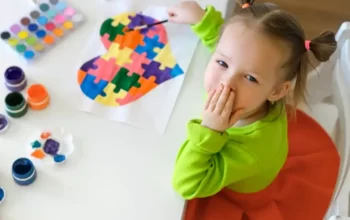Ideally, kindergarten will be a smooth, sunny introduction to real school for your child, since it sets the stage for the rest of their education. It provides your child with an opportunity to learn and practice the essential social, emotional, problem-solving, and study skills that they will use throughout their schooling. That’s why finding the right school is very important for your child’s formative early learning years.
At Little Stars, our program is designed to encourage curiosity and creativity. Your child will learn to question, discover, and problem-solve in a fun, safe and secure learning environment.
Children are more likely to learn when they are engaged in an activity. A play-based program encourages active engagement in learning and supports a range of positive developmental outcomes including resilience and independence, curiosity, and creativity.
Oral language is the basis for all literacy learning. A child’s oral language ability is the best predictor for later success in learning to read and write. Hearing the sounds within a language is the first critical step for all literacy learning.
Our educators support children’s oral language development by engaging children in rich discussions, supporting children to communicate with each other, introducing new vocabulary as part of everyday conversations, modeling correct grammar and sentence structures, singing, playing games, and reading.
Throughout the kindergarten and preschool years, children use language to share ideas, ask questions, express themselves, and connect with peers and adults in social settings. Social-emotional skills including the ability to self-regulate one’s emotions support children to experience success in group learning environments. Educators support children’s social and emotional development by labelling and talking about emotions and modelling appropriate responses as children engage in new and challenging situations.

